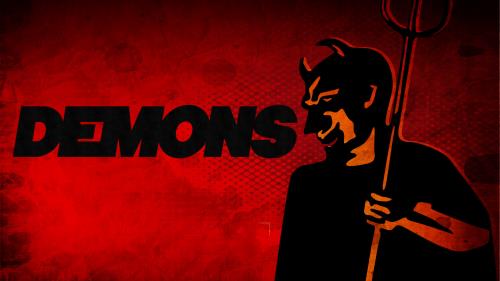-
Trash Or Treasure?
Contributed by Victor Yap on Nov 28, 2017 (message contributor)
Summary: Demon-possessed Man
TRASH OR TREASURE? (LUKE 8:26-39)
The world’s most expensive coffee is dung, literally, of and to its first consumers. Luwak coffee, or kopi luwak, cost hundreds of American dollars a pound, but the beans are the droppings of the civet creature found in South East Asia, including Philippines and Indonesia. Originally seen as pests to coffee farmers and delicacy to food lovers, the animals are now the darlings of the coffee world, with civet mini-farms a thriving business today.
The locals patiently wait at night in the remotest forests for the animals that eat the ripest, sweetest and tastiest coffee beans to excrete the beans that the civets could not digest. The indigestible coffee beans had spent at least a day in the animal’s stomach acids and enzymes before resurfacing on the other end to be thoroughly washed and sun-dried for a smooth, aromatic and chocolaty brew with no bitter aftertaste. A Manila-based company exports the product to distributors overseas, especially Japan and South Korea, for US$500 per 2.2-pound bags, or about $227 a pound.
(“From Dung to Coffee Brew With No Aftertaste,” New York Times, April 17, 2010)
http://www.nytimes.com/2010/04/18/world/asia/18civetcoffee.html?_r=1&scp=1&sq=from%20dung&st=cse
In April 2008 a department store in London began selling a blend of kopi luwak and Blue Mountain called Caffe Raro for £50 (US $99.00) a cup. http://en.wikipedia.org/wiki/Kopi_Luwak
In Luke 8 Jesus came to a man whom society considered an outcast, an untouchable, a demon, a scumbag or a bum, but Jesus treated him as a person and a soul. Jesus was unafraid of and uncompromising to the unwanted man. Jesus refused to give up and go away; instead the demons were cast out and wiped out.
How did Christ respond to society’s abandoned people? What resources do we have in Christ to help them? What is our message and what do we offer?
Surrender to God’s Planned Pursuit of Your Life
26 They sailed to the region of the Gerasenes, which is across the lake from Galilee. 27 When Jesus stepped ashore, he was met by a demon-possessed man from the town. For a long time this man had not worn clothes or lived in a house, but had lived in the tombs. (Luke 8:26-27)
How much effort and of what kind do you put into what you do?
I saw a man in shorts and a T-shirt which say
“I ALWAYS GIVE 100% AT WORK
12% MONDAY
23% TUESDAY
40% WEDNESDAY
20% THURSDAY
5% FRIDAY
Another version on the internet says, “I always give 100% at work. 25% for four days and take Friday off.”
What kind of effort of you put into caring for others and sharing the gospel?
Up to this point, even though Jesus traveled about from one town and village to another, proclaiming the good news of the kingdom of God (Luke 8:1), His ministry and travels were mainly confined to the Jewish side of Galilee, including ministry to a centurion at the beginning of chapter 7. The first thing you notice in this chapter is that Jesus took the time and initiated the travel to the region of the Gerasenes, which is on the Gentile side, across the lake from Galilee (v 26).
Jesus suggested the trip to His disciples (v 22). No one prompted and pressured him to do so. The book of Matthew indicated that Jesus got into the boat first and his disciples followed him (Matt 8:23). It was a planned, premeditated, and punishing trip, at least in the eyes of the disciples, who promptly ran into a windstorm (v 23), risking “great danger” (NT debut of word), drowning ( 24) and “raging” (NT debut) waters (v 24) in the process.
The adventure was strange and surprising. It was unusual, unfathomable, unnecessary and unwanted in the eyes of others. It was a risk and a ride no disciple wanted. Their destination was the nowhere land “region” of the Gerasenes. The more popular translation for “region” is country or countryside (Matt 2:12, Mark 1:5, Luke 15:14, 19:12, 21:21, John 11:55), the kind of place describing shepherds watching their flocks at night (Luke 2:8) and the prodigal squandering his wealth in wild living (Luke 15:13). The place seems so far and foreign that Luke uses another one-of-a-kind word in the Bible: “across” (v 26), which should be translated as “over/beyond against” (antiperan) Galilee. It was an extremely dangerous and long voyage. They started in the evening, according to Mark 4:35, and arrived the next day when farmers were already herding pigs (v 32).
Reaching the other side, the person who met them was not only a Gentile outsider, but a society outcast and a human oddball as well. Can you imagine Jesus scheduling only one event for one person on a day-trip over troubled waters and beyond yonder? All this trouble for the sake of a naked and homeless demon-possessed man? Matthew 8:28 describes him as “so violent” or “exceeding fierce” in KJV. “Fierce” (Matt 8:28) itself is an uncommon enough, appearing only once elsewhere in the Bible (2 Tim 3:1). He was a threat, a terror and a tyrant, not a teddy bear by any means. Jesus came to find a man the locals ran from; a ghost and a monster of a man the locals feared and forsook. Notice that verse 29’s “kept” and “broken” are participles in Greek, translated as “keeping” and “breaking,” meaning constant and continual struggle and battle.

 Sermon Central
Sermon Central



